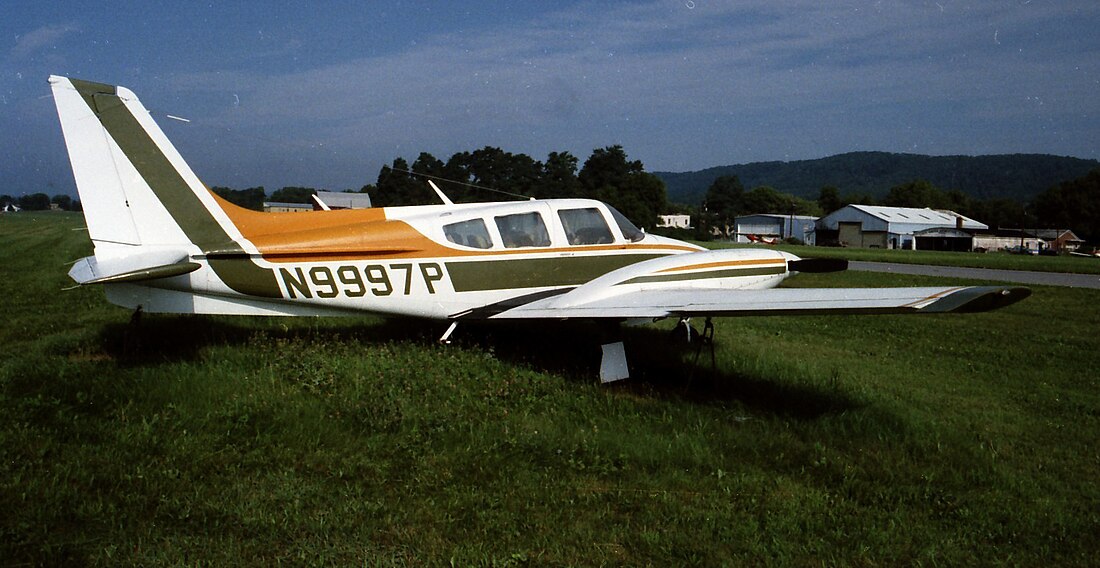Piper PA-40 Arapaho
1973 Piper twin-engined, six-seat cabin aircraft From Wikipedia, the free encyclopedia
The Piper PA-40 Arapaho was an American twin-engined cabin monoplane designed by Piper as a replacement for the PA-39 Twin Comanche C/R.[1]
| PA-40 Arapaho | |
|---|---|
 | |
| General information | |
| Type | Twin-engined cabin monoplane |
| National origin | United States |
| Manufacturer | Piper |
| Status | Cancelled |
| Number built | Three |
| History | |
| First flight | 16 January 1973 |
| Developed from | Piper PA-39 Twin Comanche |
Like most Piper products at this time, the PA-40 was named after a Native American tribe, in this case the Arapaho.
Development
Summarize
Perspective
The Arapaho was similar in size to the Twin Comanche and had six seats but had a taller main landing gear and larger cabin windows.[1] It had two counter-rotating 160 hp Lycoming IO-320 engines.[1]
The prototype was damaged in June 1972 when the factory at Lock Haven, Pennsylvania, flooded and the prototype, registered N9999P, did not fly until 16 January 1973.[1] It crashed on 21 September 1973 during spin trials.[1] and the aircraft was redesigned with a taller tailfin. The second modified prototype with normally aspirated engines first flew in April 1974 and was followed by a third aircraft with turbocharged engines.[1]
The PA-40 was type certified on 18 July 1974, as an amendment to the Twin Comanche type certificate. The Arapaho was scheduled to be launched as a 1975 model, but the company decided not to market the aircraft and the project was cancelled in December 1974.[1][2] Piper stated that the cancellation was for financial reasons as it did not want to establish a new production line during the 1973–1975 recession.[3]
Following cancellation the two aircraft were used by Piper as company liaison and communication aircraft, one based at Lock Haven, the other at Lakeland, Florida.[4] Later, one aircraft was scrapped by Piper and the third, registered N9997P, is now privately owned in Texas, following use by the Purdue University student maintenance program.[5][6]
References
External links
Wikiwand - on
Seamless Wikipedia browsing. On steroids.
